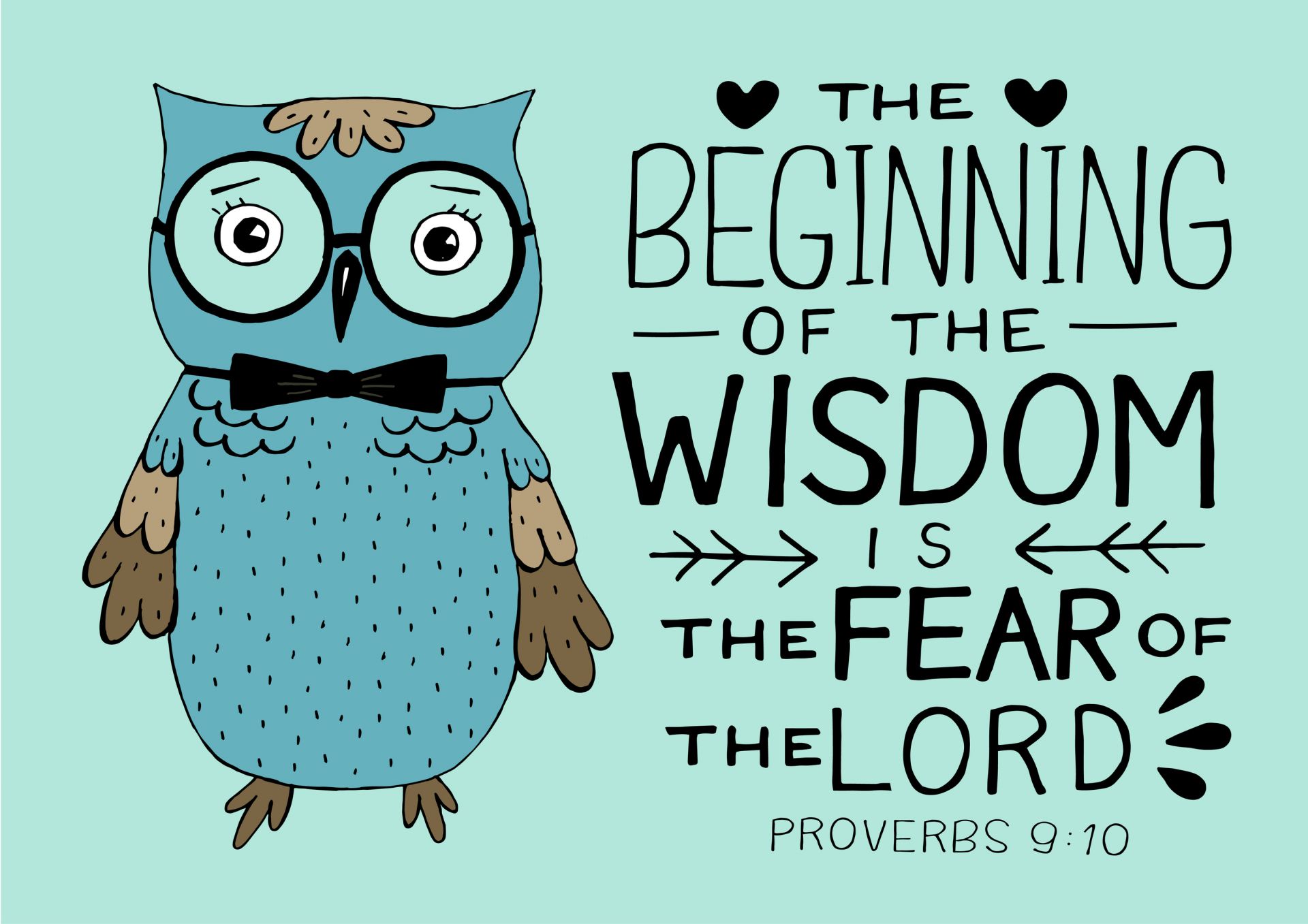
by Ryan Smith | Sep 12, 2019
One of my
favorite books is Thomas Kuhn’s landmark work, The Structure of Scientific Revolutions.
Kuhn’s
observation is that, historically, scientific understanding of ourselves and
our universe has not been a linear progression of increased and clarified
knowledge. Instead, it has been a cycle of firmly-held paradigms being replaced
by new and divergent paradigms. This phenomenon is what Kuhn calls a paradigm shift. As Kuhn says, this is
not about seeing different things, but about seeing things differently.
The process, as
described through numerous examples and cases, goes something like this:
- We
have firmly-held ideas, assumptions and theories about ourselves and the
universe that form our worldview. Our worldview dictates what we study and how
we study it.
- Theories
and tests, at times, run into discrepancies. These discrepancies are usually
labeled “anomalies” and discarded (after all, they don’t line up with the
worldview which must be true).
- As
anomalies continue to occur, at some point someone raises their hand and says, “Maybe
instead of throwing out the anomalies, we should consider them.”
- As
the anomalies are considered, a new idea emerges, centered on the previously
conflicting evidence. This new idea then becomes cemented as a new assumption,
theory and worldview.
- Hit
repeat
Kuhn’s theory
allows us to ask the question, “What might we be missing?”
Charles Darwin’s
theory of evolution as the origin of the species has been cemented as societal truth
for nearly a century. To suggest an idea that is not aligned with evolutionary
theory would result in expulsion from the academy and scoffing from one’s
peers.
As Ross Geller
once chided Phoebe, “Evolution is scientific FACT!”
Evolution as fact
has formed not only the worldview of the scientific community at large but
common culture as well. Simply walk over to your neighbor’s house and say, “I
doubt evolution,” You might be looked at as if you had just questioned the
existence of oxygen or said bears can talk.
While the
acceptance of Darwin’s theory has formed a worldview that dictates how many in
our world understand ourselves and the universe, some are beginning to question
why there is tape on Atlas’s Darwinian orb.
One significant
event Darwin could not explain was the Cambrian explosion. The Cambrian
explosion is the name given to the sudden appearance of many species of animals
in the fossil record. While these animals do not have any preceding ancestors
apparent in earlier layers of rock, Darwin was confident they eventually would
be found.
They haven’t.
Science has also
advanced our knowledge exponentially since Darwin’s time regarding what is
really in all that goop inside our bodies. Within the last 50 years, biologists
have been overwhelmed by the amount of information stored in single cells and
DNA strands that point to the intricacy of what it takes to make an animal.
The cracks in
Darwin’s impenetrable shell have been increasing.
While there have
been rumblings of doubting Darwin for years in the scientific community, a
significant fissure was exposed recently as David Gelernter – a highly
respected and world-renowned computer scientist at Yale – raised his hand and
said perhaps we should consider the anomalies.
In an essay
titled, “Giving Up Darwin,”
published in the Claremont Review of
Books, Gelernter explained that he is moving on from Darwinism. His article
opens with the observation, “Darwinian evolution is a brilliant and
beautiful scientific theory. Once it was a daring guess. Today it is basic to
the credo that defines the modern worldview…But what if Darwin was wrong?”
Dr. Gelernter is
not a Christian. He may not even be a theist. He claims the dismissal of Darwin
is not a victory for religion per se, but a clear acknowledgment that the roads
of science are leading to Intelligent Design. He meticulously outlines case by
case of scientific discovery that not only make Darwin’s theory untenable, but
undergird, highlight, spotlight, place neon signs on, and scream to all who
will listen that all of this—we and our universe—is not a mistake.
Those who hold to
a biblical worldview have held to this truth in spite of the societal winds
buffeting our faces. The Bible clearly says God is the Creator and Sustainer of
all things. While various views branch from that tree, the certainty of a
Designer outside of ourselves has been unshakeable.
While Gelernter’s
essay may mark a significant turn in the case against Darwin, our culture will
not necessarily conclude that the God of the Bible is the Intelligent Designer
indicated by unfolding science. In many ways, Darwinism has held its position
so long because there has not been another viable explanation that doesn’t
require a Deity to whom we are accountable.
Likely, our
culture will progress toward Intelligent Design as a theory while still
refusing to acknowledge the God of the Bible. After all, once one does that, a
lot of paradigms have to shift.
Should our
society move away from Darwinian evolution, it does not cement the Bible’s case
for skeptics, but it may open doors for conversation. It increasingly becomes
incumbent on us as Christians to share the Scriptures and what they say about
who we are, who God is and what all of that means.
Our friends,
peers and others may become more open to the idea that they are not a mistake.
The desire to understand our purpose and things beyond ourselves may increase.
In other words, new doors are opening around us for Gospel conversation.
Our world’s views
on evolution may be evolving, but the Gospel is not. Christian, be prepared.

by Ryan Smith | Aug 29, 2019
Never doubt the value of the little things in God’s economy. Your small act of daily obedience may be the turning point in someone’s life.
By now you may
have read this
article from The Gospel Coalition regarding Becket Cook.
Ten years ago,
having earned a glowing high-profile reputation as a set designer in the
fashion industry, Cook was among the Hollywood elite. His work took him around
the globe, placed him in prestigious magazines like Vogue and Harper’s Bazaar, and
earned him an invitation to parties hosted by Hollywood royalty.
However, Cook, a
gay man engaged in an active homosexual lifestyle, became disenchanted with the
peak of fame, fortune, sexuality and fashion. Unsatisfied, he began to wonder
if there was more to life.
The article
recounts Cook’s experience of being introduced to the church through a small
group of believers who were reading their Bibles at a coffee shop.
Having assumed
God was “off the table” for him as a gay man, Becket was alarmed to find hope
in the Gospel of Jesus Christ as presented unashamedly from the Word of God. He
threw himself into sermons, Bible-centered instruction and personal
discipleship in the local church.
The article
explores in detail how the LGBTQ movement has created a driving narrative in
Western culture and how stories like Becket’s fit within that unfolding
narrative. There is much to gain from the article, and Cook’s story is told compellingly
with great truth, compassion and candidness.
The article makes
a splash in many ways because it’s about Hollywood, LA, fashion, homosexuality,
fame and a “Road to Damascus” experience for a man amidst a cultural firestorm.
But there’s a
quiet story inside this story.
What God used in
such an extraordinary account is something we might consider to be extraordinarily ordinary.
While God was
doing a great work in the heart of fashion icon Becket Cook, God had also established
regular rhythms for a small group of young believers. When they took their
Bibles to the LA coffee shop that day, they likely expected nothing more than
good coffee, quiet atmosphere and another regular day of reading the
Scriptures.
Likely none of
the young adults engaged in their Bible reading that day thought they were
doing something of momentous cultural and spiritual significance. Some, like
myself, may have felt somewhat shy at opening up God’s Word in such a public
setting – not wanting to appear pretentious or “preachy.”
But in the hands
of a Sovereign God, small things matter.
Had those young
adults known they were going to engage in a conversation about biblical sexual
ethics, they might have felt ill-equipped. Had they known Cook was a famous
Hollywood set designer and active member of the gay community, they may have
been tempted to sit in a different area discreetly – or even capitulate to the
cultural tides when asked about homosexuality instead of standing firm on
biblical convictions.
But they didn’t.
They read their Bibles, were available for questions and invited someone to
church.
Do you ever
consider how regular, monotonous obedience might be used in the hands of a
Sovereign God?
While the
article, “From Gay to Gospel” is a great story of God’s work in the life of a
cultural elite, it is also quietly a story about unremarkable faithfulness to
God being used by God for His glory.
This amazing story
of redemption, fame and sex is just as much a story about small obedience.
Never doubt the
value of the little things in God’s economy. Your small act of daily obedience
may be the turning point in someone’s life. It may be the beginning of a great
conversation about the Gospel in the LGBTQ community. Or it may be another day
of reading the Scripture over a tall latte that seems insignificant and
habitual.
Either way, read
your Bible. Be available. Invite someone to church. You never know what God
might do.

by Ryan Smith | Aug 1, 2019
The Bible has a
lot to say about wisdom.
Prov. 4:7
emphatically declares, “The beginning of
wisdom is this: Get wisdom.”
In what is known
as the Old Testament Wisdom Literature, numerous passages contain the axiom, “The fear of the LORD is the beginning of
wisdom” (Ps. 111:10, Pr. 9:10).
In the New
Testament, James urges his readers to seek godly wisdom as he states, “If any of you lacks wisdom, let him ask God,
who gives generously to all without reproach, and it will be given him”
(James 1:5).
If anything is
clear from these passages (and many others), it’s that in the economy of God,
wisdom carries an extremely high premium.
In 2 Chronicles,
when prodded by God to ask for anything,
Solomon asks not for wealth, honor, long life or new apple products, but only
for one thing: wisdom. God gave it to him in abundance. It was said of Solomon
that he was the wisest man who ever lived. Why? Because in the fear of the
LORD, he sought wisdom from God.
The loud and
clear message from Scripture is this: pray for wisdom.
Yet somewhere in
the shadows of this voluminous illumination, a nagging question lurks. If
Solomon, the wisest man who ever lived, sought wisdom from God and was
overflowingly accommodated, why did the sum total of his wisdom lead him to the
continual refrain, “Vanity of vanities!
All is vanity” (Ecc. 1:2)? Meaninglessness. Futility. This is the pot at
the end of the rainbow of wisdom?
Being the wisest
man who ever lived didn’t make Solomon the holiest. While his wisdom may have
provided clarity and discernment in recognizing the right path, it didn’t enable
him to take it. Solomon was a man who indulged in materialism, sexuality,
drunkenness and workaholism. His wisdom allowed him to see these things as
empty—but it didn’t keep him from returning to their wells.
This leads us to
a brief observation regarding wisdom. The Bible clearly wants God’s people to
have wisdom—not only to have it but to exercise it. This tells us that, while
we may seek and gain great attributes of the faith, if we aren’t going to
employ them for the glory of God and the sake of the Gospel, they will
ultimately be of no use. Praying for specific means without the intention of
using those means for God’s glory turns those means into an end. Any end other
than God’s glory is an idol.
In light of this,
I offer two reasons why you shouldn’t pray for wisdom:
Don’t pray for wisdom if…
1) …You’re not willing to use it for
yourself.
I admit, when
seeking to sharpen my mental prowess or accumulate knowledge, my initial and
most compelling thought is often how someone else could use the information. I
have great ideas about how other people should employ discipline and submit to
God’s revealed will in the Scriptures. It is relatively easy for me to come to
a biblical passage for wisdom in order to tell someone else how to live.
However, if the first seat in front of my soapbox is not reserved for myself,
my desire for wisdom is vanity.
Gaining wisdom,
discernment and knowledge are all noble and right pursuits. But like Solomon,
we can have all the understanding in the world, yet little application of it in
our own lives. We must begin with the uncomfortable pursuit of not only
allowing the Spirit to illuminate the dark places inside of us through wisdom
but also to enter those areas with tools of refinement.
2) …You’re not willing to use it for
others.
Another
compelling reason to desire wisdom, insight and knowledge is that we like to
see the world for what it is. I love how the Bible flags the mines and marks
the arrows of the narrow road of righteousness in a dark and sinful world.
Often, however, it is easy for me to be a consumer of those markers and not a
participant in their purpose.
As previously
stated, gaining wisdom, discernment and knowledge are all helpful on one’s
journey, but one’s journey is not solitary. There are those behind and beside
us that not only need to see the flags and arrows that mark the way before us
but also need us to raise flags and post pointers ourselves.
We can gain
wisdom by learning every apologetic argument, memorizing every word of
Scripture, and being deeply moved by the compassion of Jesus. However, unless
we are willing to engage talking points in an adversarial climate, share words
of Scripture with others, and employ the compassion of Jesus in our own lives,
our wisdom is meaningless.
We must not only
be consumers of wisdom but recognize that God gives His understanding to be used among His people for His glory.
The Bible says we
should pray for wisdom and that the fear of God is where we start. This is
because we are not our own but belong to God. He bought and equips us to use
us. If we desire His wisdom but don’t want Him to use it, we betray the fact
that we really have no fear of the LORD.
May we not be
gluttons of information or insight. Instead, may we be vessels of nourishment
carrying the wisdom of God to the darkened world within and around us.

by Ryan Smith | Jul 24, 2019
I don’t like 3D
movies. I appreciate the effort and sometimes enjoy the experience, but as for
me and my house, just give us the regular movie as God intended it.
First of all, I
don’t like having to pay for glasses I don’t get to keep. Second, the glasses
never fit my head correctly. I’m continually having to adjust them. Really, the
only satisfying part of going to a 3D movie is after the Nissan commercials and
movie previews when that empowering line appears: Please Put On Your 3D Glasses Now.
At that point, I’ll
admit, the immersion into the third dimension is exciting. However, I’ve
noticed an interesting phenomenon. Once everyone has finally donned their 3D
headwear and collectively been transported to a new visual realm, something
fascinating takes place. Within the first two minutes of the movie, what does
every person in the theater do? Every person lifts their glasses to see what
the 3D movie looks like on the screen without them.
In a way, this
experience of screen and lenses is a microcosm of what each of us experiences
in life. A.W. Tozer once said, “What comes into our minds when we think about
God is the most important thing about us.” Why is it important? Because our
view of God affects how we live. If we believe God is good but not all-knowing,
we may not take sin or holiness seriously. We may think of God as a kindly
grandpa in the sky who needs our help and doesn’t notice our occasional
dalliances with sin.
On the other
hand, if we think God is all-knowing but not good, we will take every step in
fear. Each time we sin or make a decision, we will fear the all-seeing eye of
God that we believe sits ready to smite us with a lightning bolt at every misstep.
Our view of God matters.
C.S. Lewis, in
response to this idea, countered that “How we think of (God) is of no
importance except in so far as it is related to how He thinks of us.” Lewis
observes that it makes no difference what we think of God because, regardless
of what we think of Him, we don’t change a single attribute of His. We may
believe God is a purple flying spaghetti monster, but in no way does that make
God purple or a flying spaghetti monster. God is who He is despite our view of
Him.
So which is
right? The answer is both. What Tozer
and Lewis are describing are two sides of the same experiential coin. Tozer is
describing something called Worldview. Our
worldview is the lens through which we take in the world and encounter its experiences.
It is the filter through which we understand the world.
What Lewis is
describing is Reality. There is an objective
world, an objective God and objective people we encounter in life that exist
entirely outside of our experience or understanding of them. Reality is the way
things actually are.
When one’s
worldview and reality are in line, there is harmony. One can see and understand
the world in the way it is meant to be seen and understood. Round is round,
square is square, good is good, and bad is bad. Just as one views objective
images displayed on a screen in a theater (reality) that is made to be seen
through custom lenses (worldview) that complement and adjust for the objective
images, when one’s worldview and reality are in alignment, things work. Life makes
sense.
However, if one’s
worldview is different from what exists in reality, confusion sets in. Things
aren’t right. It is like trying to watch a 3D movie with 2D glasses.
The truth is,
every one of us has a worldview. We have developed our worldview mainly through
personal experience as well as what has been modeled, explained or recommended
to us by those we admire or those we do not admire. While our society clings to
its worldviews, the mantra of our postmodern age is that reality does not
exist. There are no meta-narratives or truths one must align one’s worldview
with. There is no movie on the wall. Only the lenses matter.
The Bible,
however, presents a very different picture. The Bible tells us there is a God
who is all-powerful and sovereign. This God is good and full of mercy but also
holy and wrathful in judgment toward sin. The Bible presents us with a God and
Gospel not of our own making, but as they both exist in reality.
We may not like
this God. We may disagree with what He has created, purposed, designed and
called good. Like the serpent in Genesis 3, we may ask, “Did God really say?” and be tempted to respond
by adjusting God’s reality to our worldview with the words, “Surely you won’t…” But it doesn’t change what
is true.
Our modern era is
a clash of worldviews. Social media has enabled each person with a voice to
proclaim their view of objective reality, and often it is done with the
forceful claim that our view is itself reality. But God has not given us the
capacity to define reality. He has, however, given us the tools with which to view
reality correctly. When we come under the Word and its authority, we understand
God for who He is and our sinful, broken world for what it is. God even gives
believers the Holy Spirit to correct, adjust and clean our lenses daily, so
they are more in alignment with reality.
When we come to God
and the Bible, we must come with an open-handed worldview. We must submit
ourselves, our opinions and our desires to what God says is right, true and
good. We have to wear God’s lenses to understand His story. Wherein those
things seem out of alignment, we must seek to change our worldview, not the
Scriptures. We must clean our lenses, not try to repaint the screen.
When we believe
the world doesn’t make sense, or become confused by the myriad of voices in the
air, let us remember that God has not left us alone in the dark. God gives us
the right worldview in the Scriptures through which to see reality.
When God defines
our view of His reality, we worship Him. Let us praise God for the illumination
of His Gospel lenses through the Scripture and commit ourselves to not seeking
to take peeks through our natural eyes or embrace distortions of the reality
before us. As the apostle Paul prayed for the Ephesians,
“I pray that the God of our Lord Jesus
Christ, the glorious Father, would give you the Spirit of wisdom and revelation
in the knowledge of him. I pray that the eyes of your heart may be enlightened
so that you may know what is the hope of his calling, what is the wealth of his
glorious inheritance in the saints, and what is the immeasurable greatness of
his power toward us who believe, according to the mighty working of his
strength” (Eph. 1:17-19).

by Ryan Smith | Jul 4, 2019
The Christian
movie industry has often been maligned, and in many cases justifiably so. There
are, however, those seeking to up the industry game and provide Christ-based
films via major market media with enhanced watch-ability and content.
When you think of Christian movies, you may think of Kirk Cameron, crying fathers or the ill-advised Nicholas Cage version of Left Behind. Transition Studios is out to change that paradigm with the documentary, American Gospel: Christ Alone.
American Gospel seeks to accomplish numerous goals and does so quite successfully. First and foremost, the movie presents the Gospel of Jesus as central to the identity of the church. The film is exceptionally creative and straightforward in outlining what the Gospel is and why it is sufficient.
Having established this truth, the film moves forward to expose many Westernized ideas that what God desires for us is the Gospel plus something else – as if the Gospel itself is insufficient.
Stemming from this dangerous heresy are many strands of what has come to be known as the “Prosperity Gospel.” The film explores the journeys of various individuals who have bought into the “Gospel plus” mentality and fallen to the siren song of the Prosperity Gospel itself.
Featured among
these stories are those who have struggled with the idea of a good God in the
face of a broken world. For example, a seemingly healthy atheist couple
encounters an incurable disease. A man who comes to faith almost dies because
he believes God should heal him. A man with a broken body seeks physical
healing and instead finds restoration for his soul.
Personal experience is placed alongside doctrinal fidelity and Scriptural verification of what the Gospel of the Bible truly is.
The most compelling highlight of the film is the story of Costi Hinn, nephew of renowned faith-healer and Prosperity Gospel proponent Benny Hinn. Costi tells of his active service to his uncle’s ministry and the difficulties he began to experience, as he compared what he saw in his daily involvement with Biblical truth.
American Gospel does an excellent job of warning about false teachers while still upholding the truth of the Gospel as beautiful and supreme. It is not a hit-piece on Prosperity Gospel preachers per se, but does help identify many vital players, phrases and ideas that easily infiltrate Christian bookstores, studies, pulpits, and churches.
The film is
available on iTunes, Amazon, Vimeo, YouTube, and Google Play. More information
is available at www.americangospelfilm.com.




